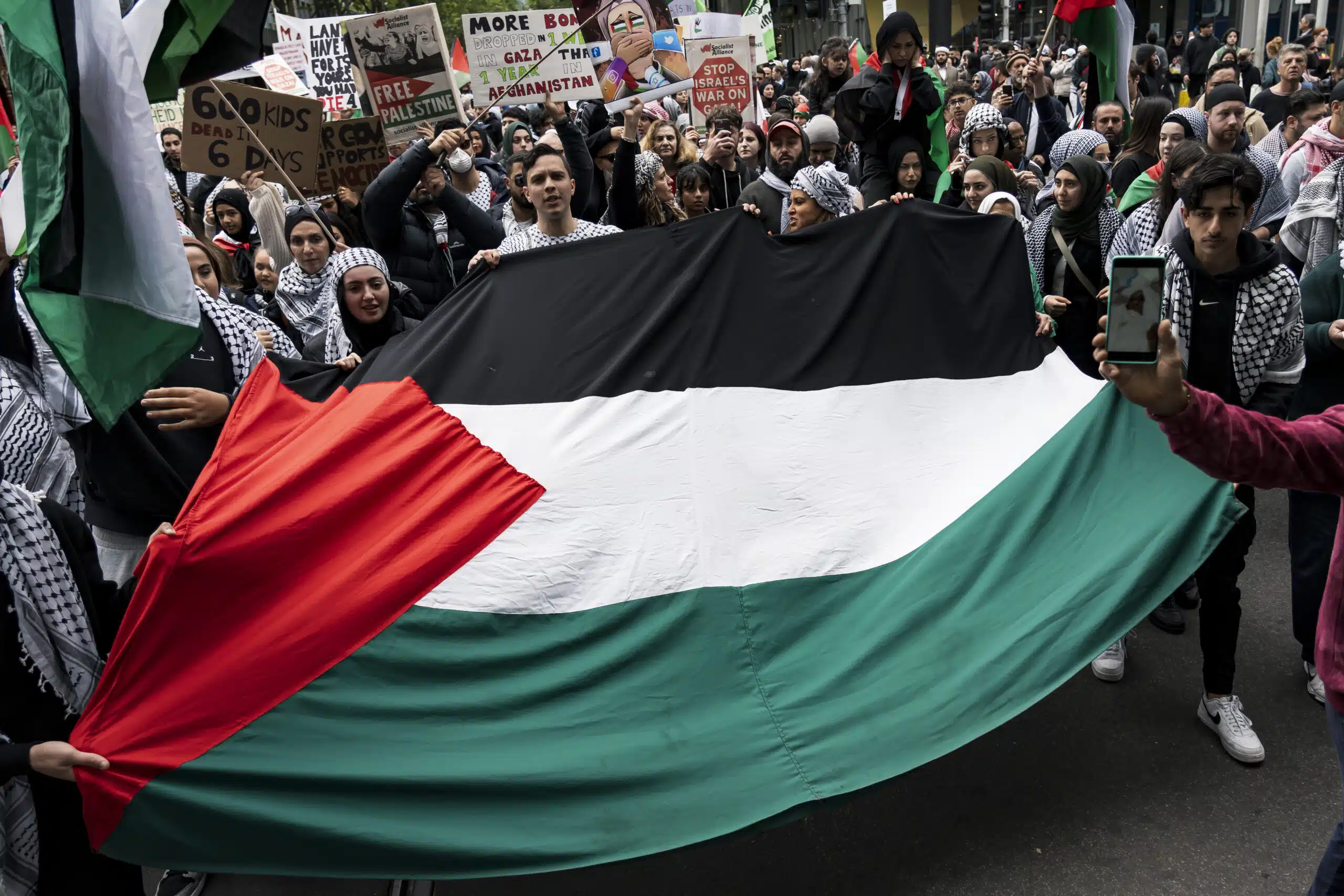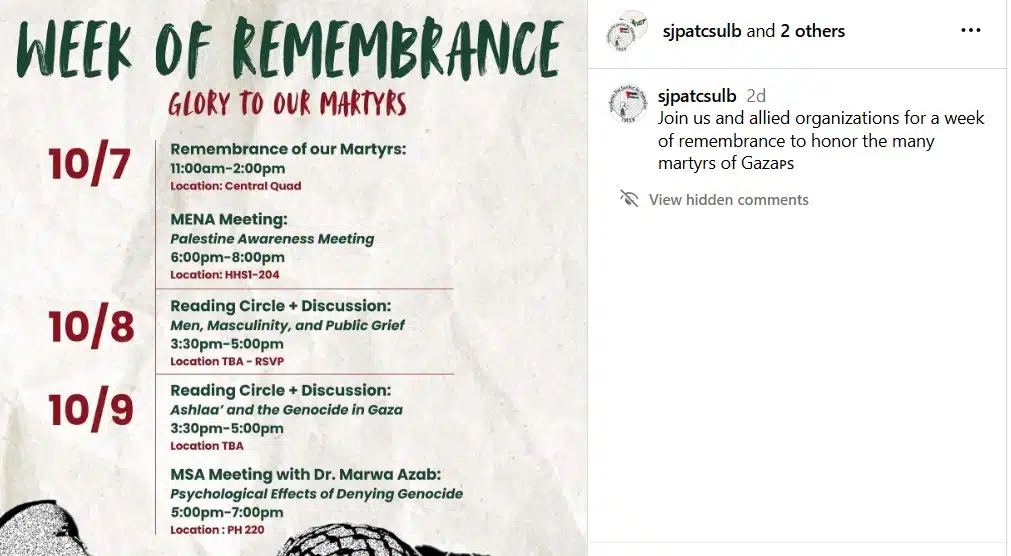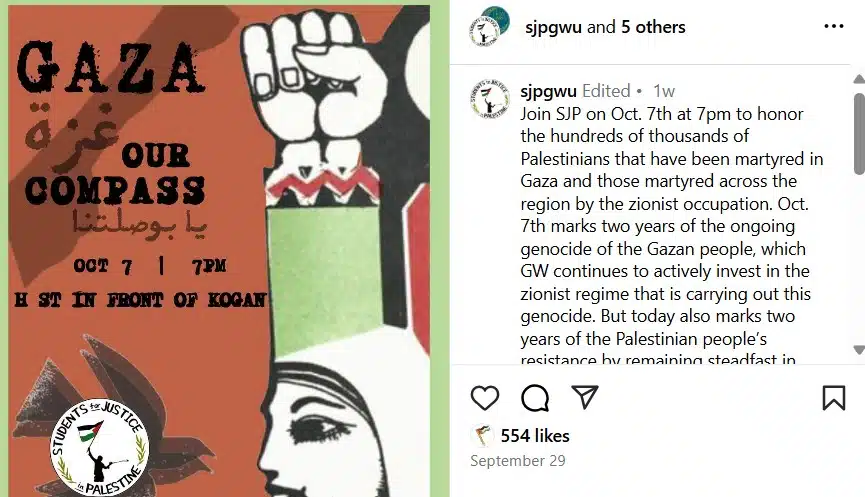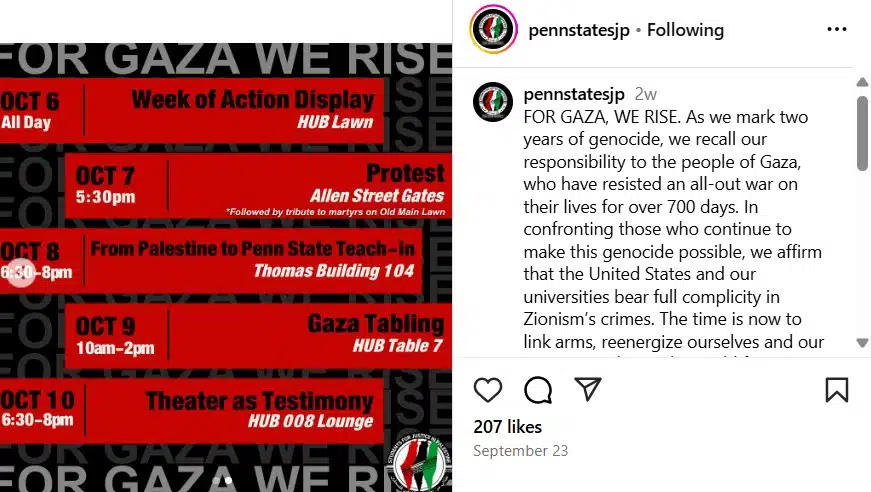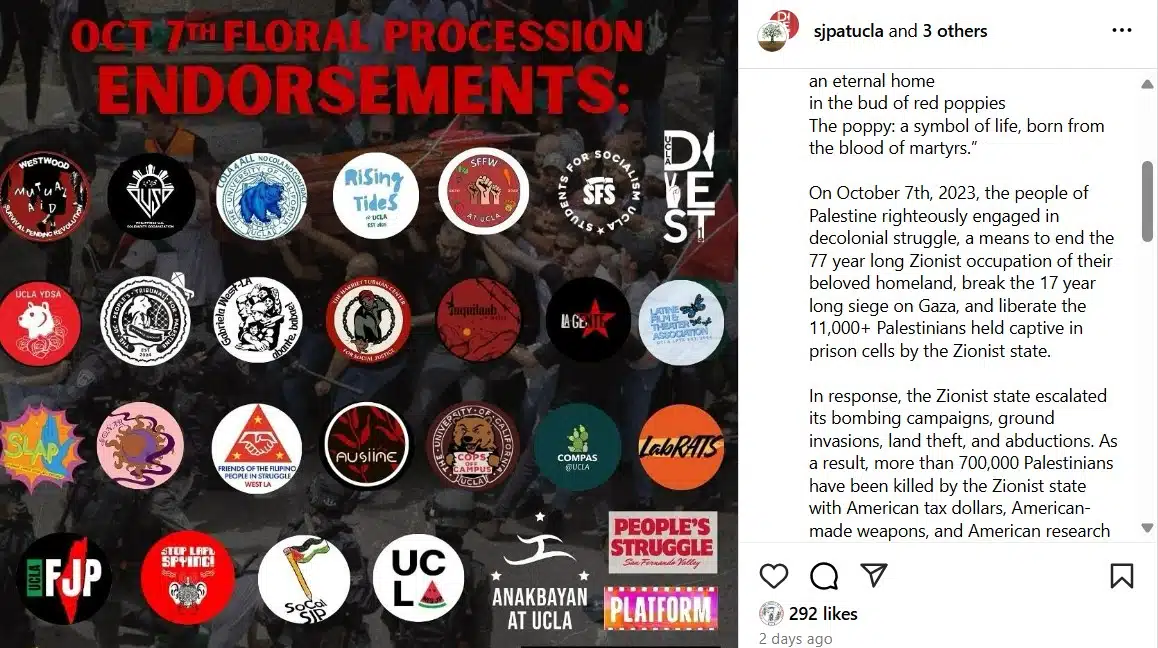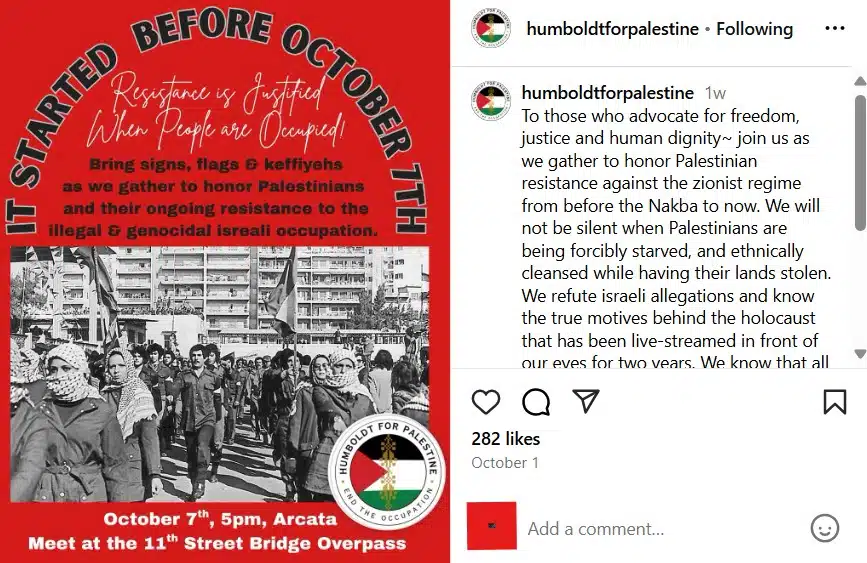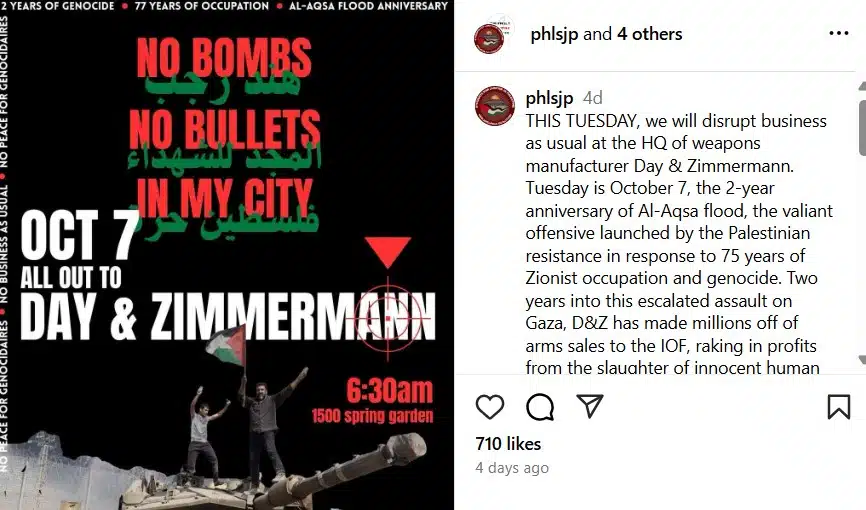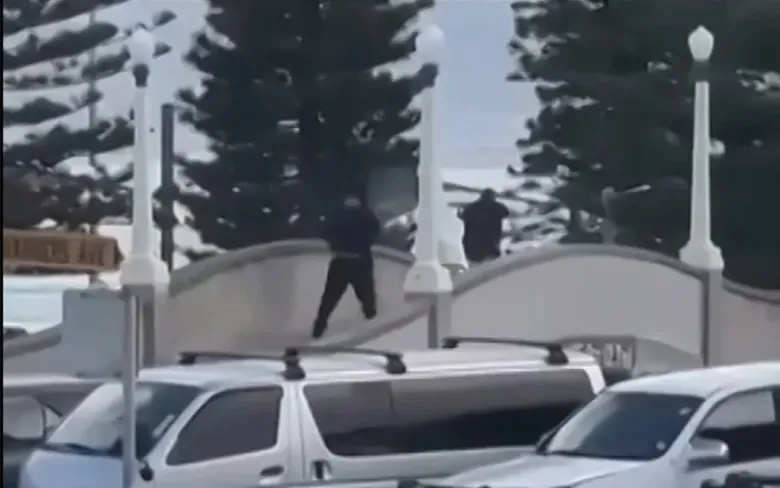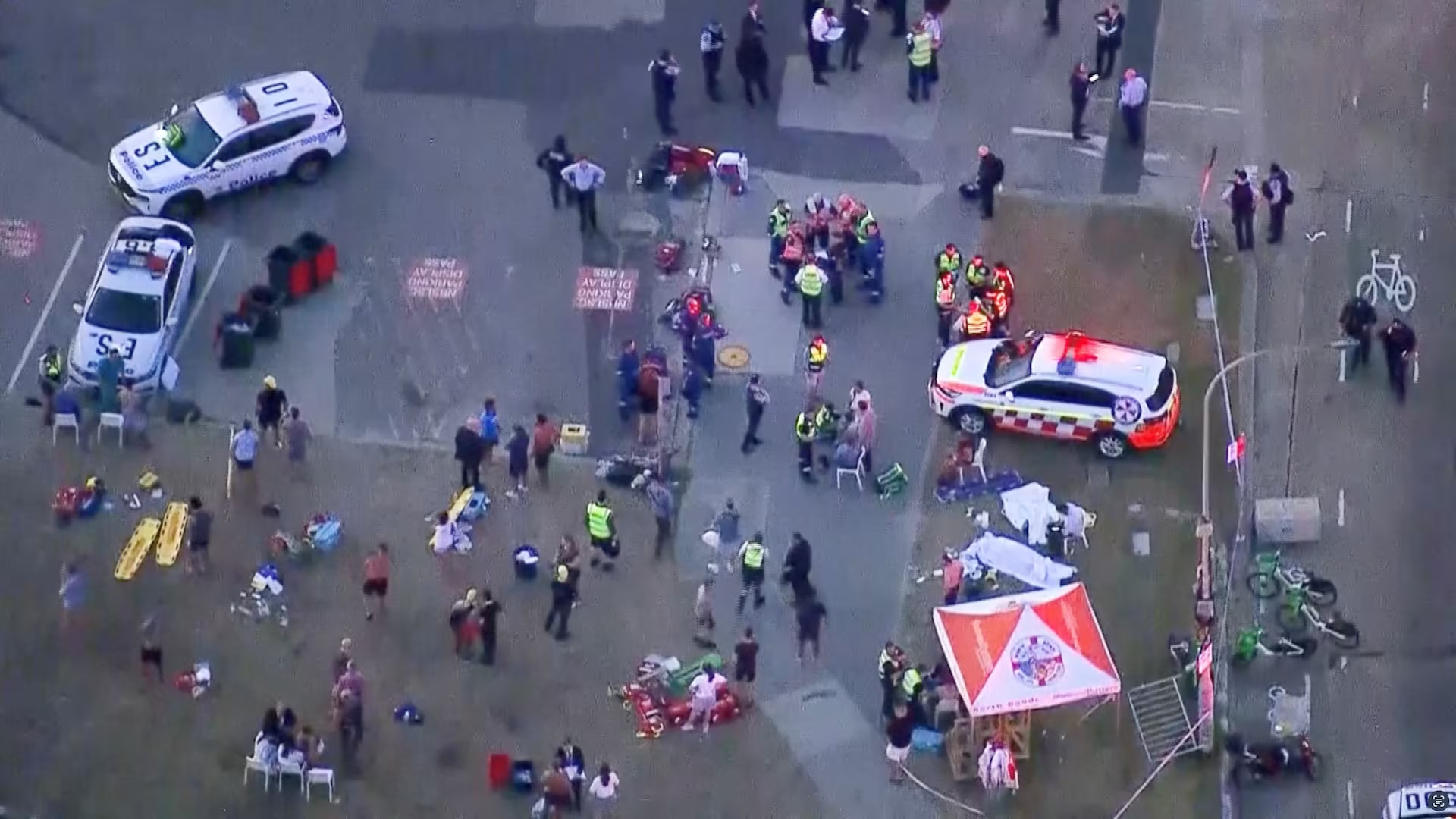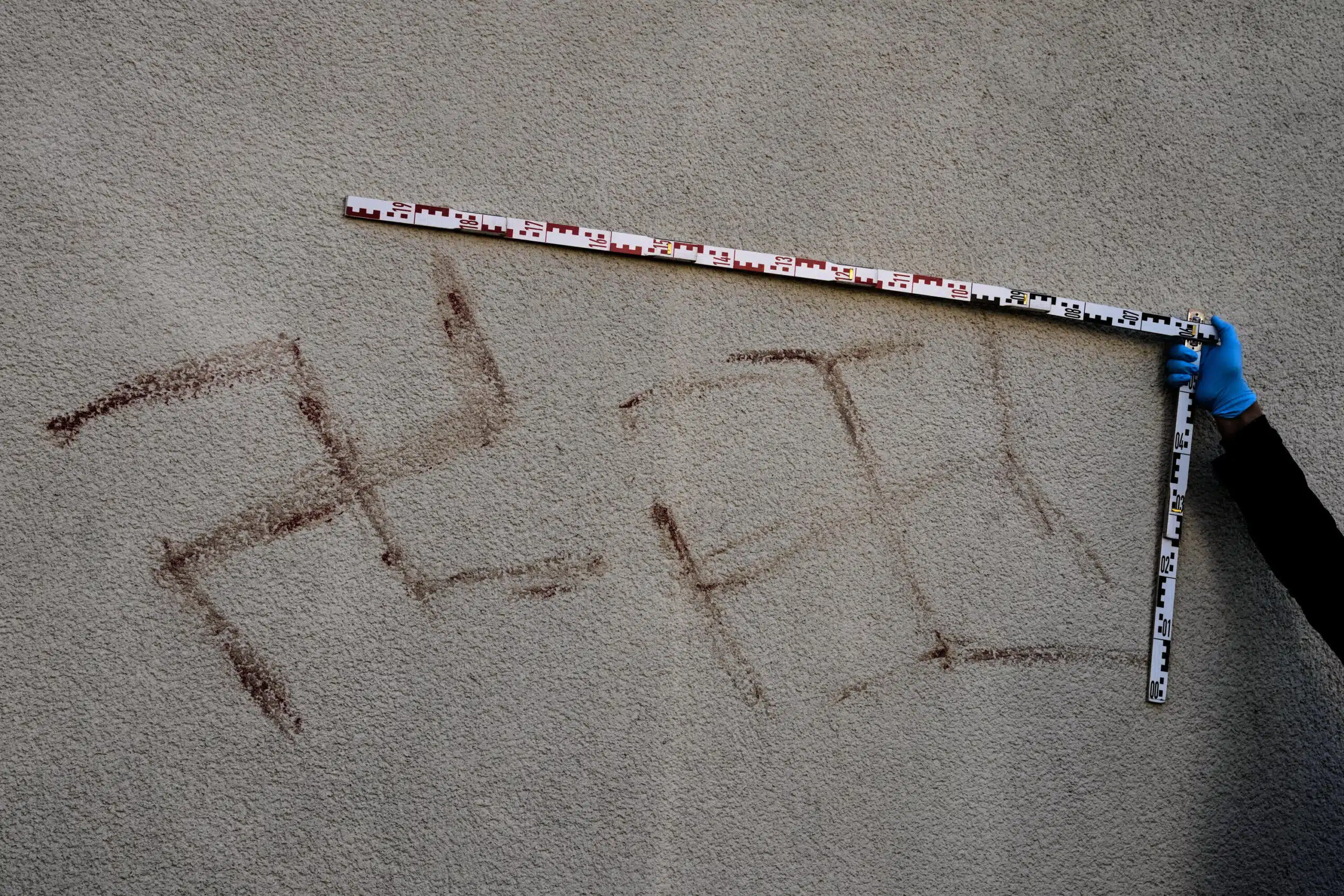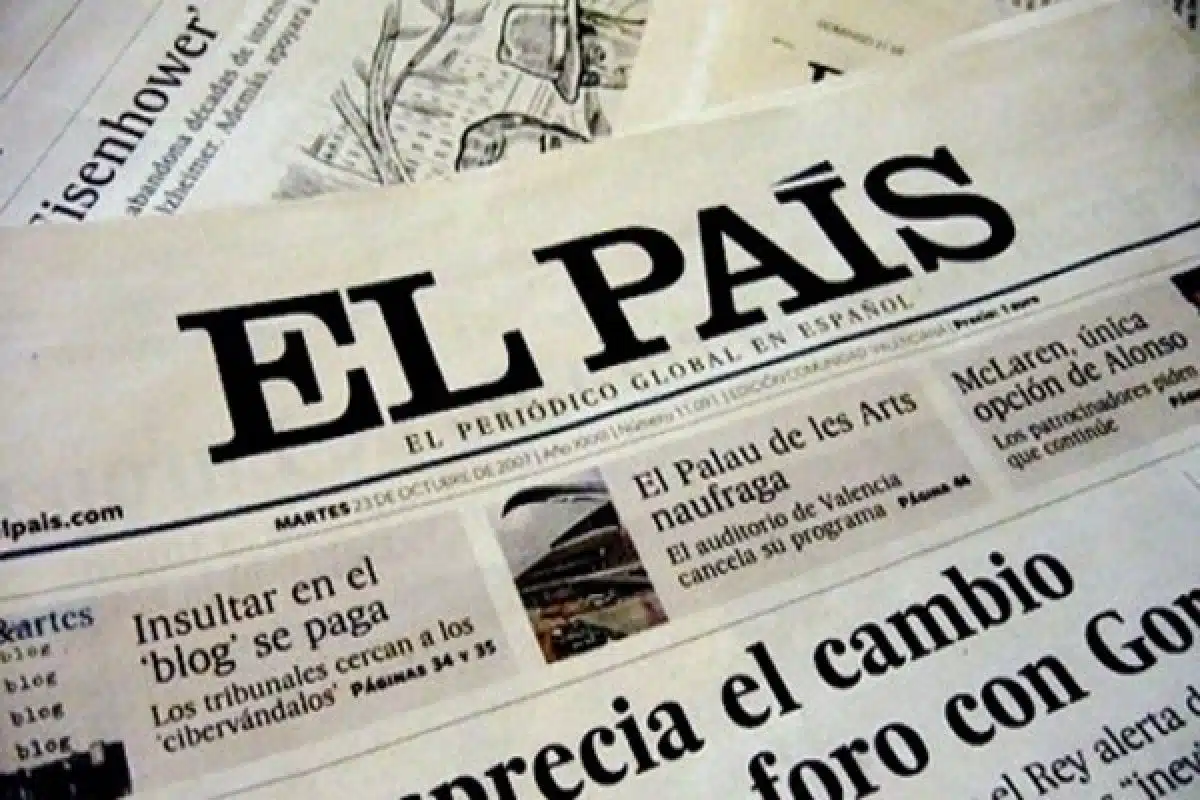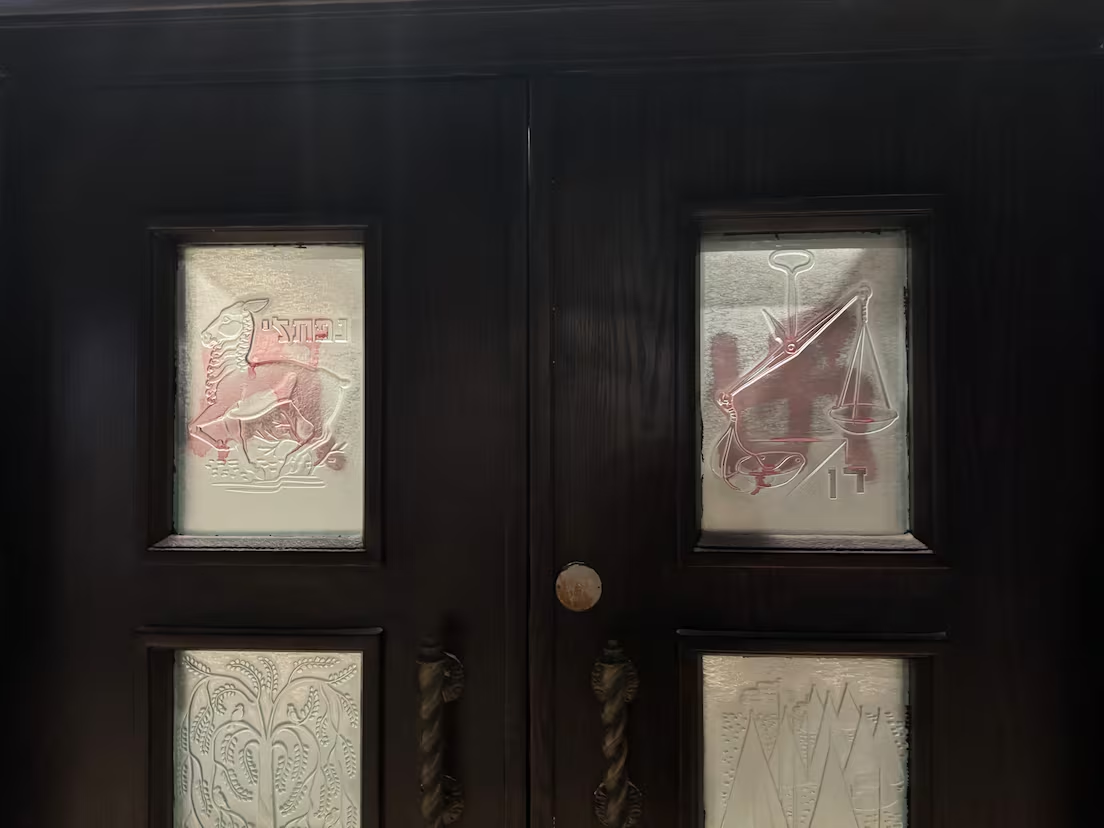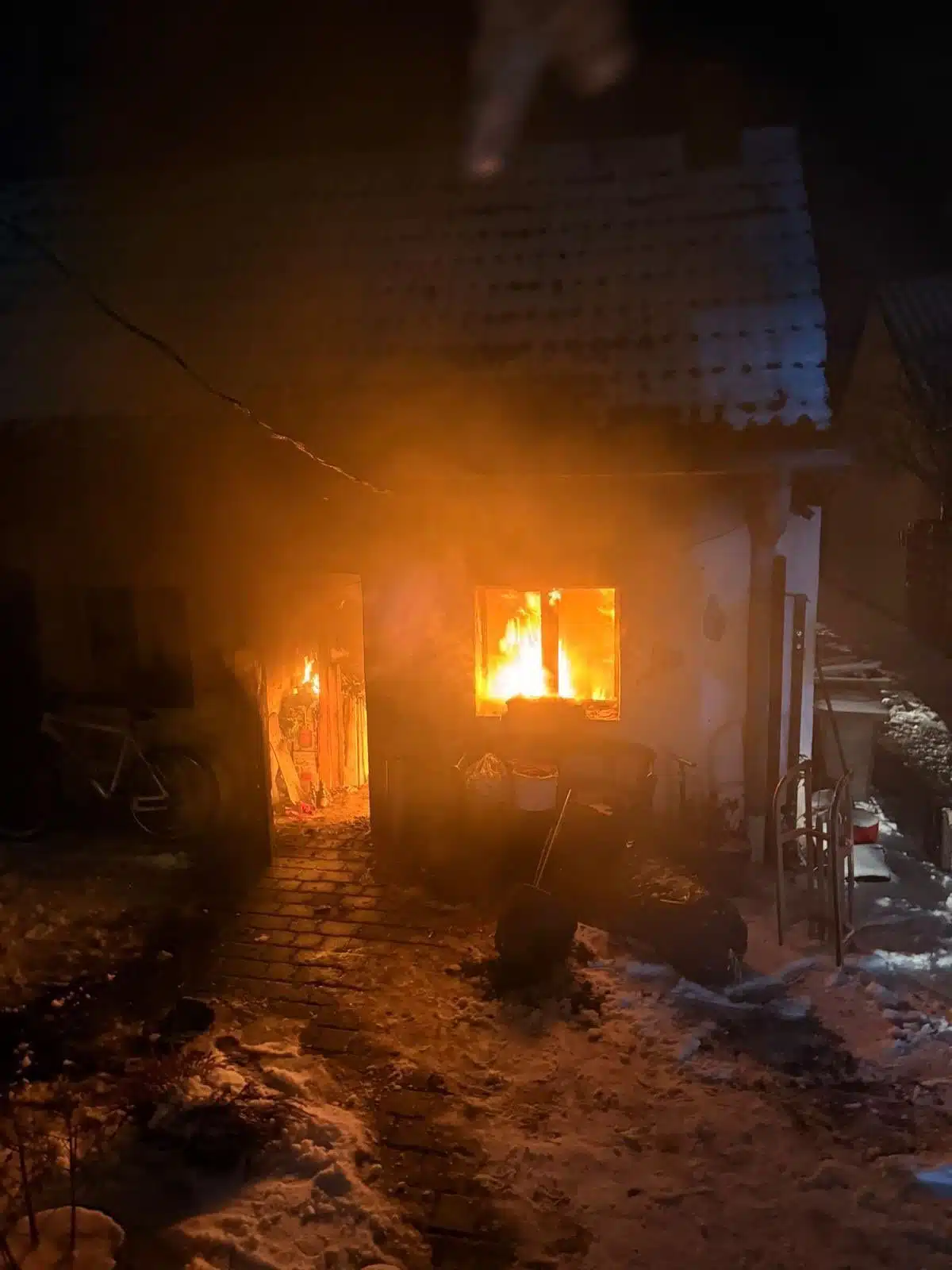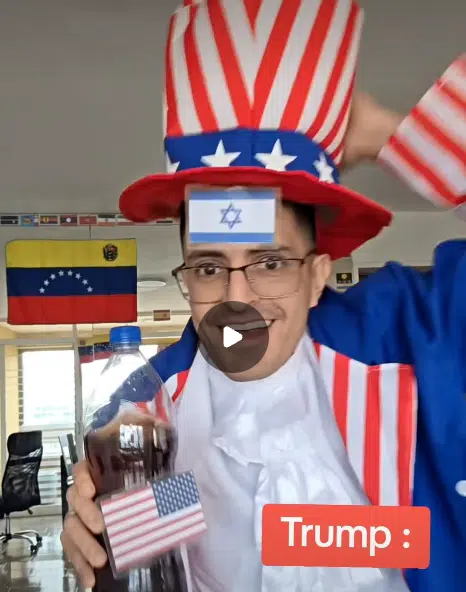|
Getting your Trinity Audio player ready...
|
As the second anniversary of the October 7th massacre was commemorated around the world this week, the Antisemitism Research Center (ARC) by CAM tracked a sharp uptick in antisemitic incidents, as anti-Israel extremists used the anniversary to disseminate vitriolic incitement targeting Jews.
Of the 254 total incidents documented by the ARC this week, 150 were linked to October 7th-related protests. This mirrored a similar pattern from a year ago, when the week surrounding the first October 7th anniversary saw 324 incidents of antisemitism recorded globally, the most ever tallied in a single week of monitoring by the ARC.
October 7th anniversary-related incidents were captured with news reporting and social media evidence, particularly Students for Justice in Palestine (SJP) Instagram accounts. Of the incidents:
- 130, or 86.7% — the vast majority — involved erasure of Hamas’ crimes (describing October 7th not as a massacre of Israelis but as the start of Israeli “genocide,” or commemorating the day with political demonstrations that demonized Israel or celebrated Palestinian nationalism).
- 20, or 13.3%, involved glorification (describing the massacre as “righteous”).
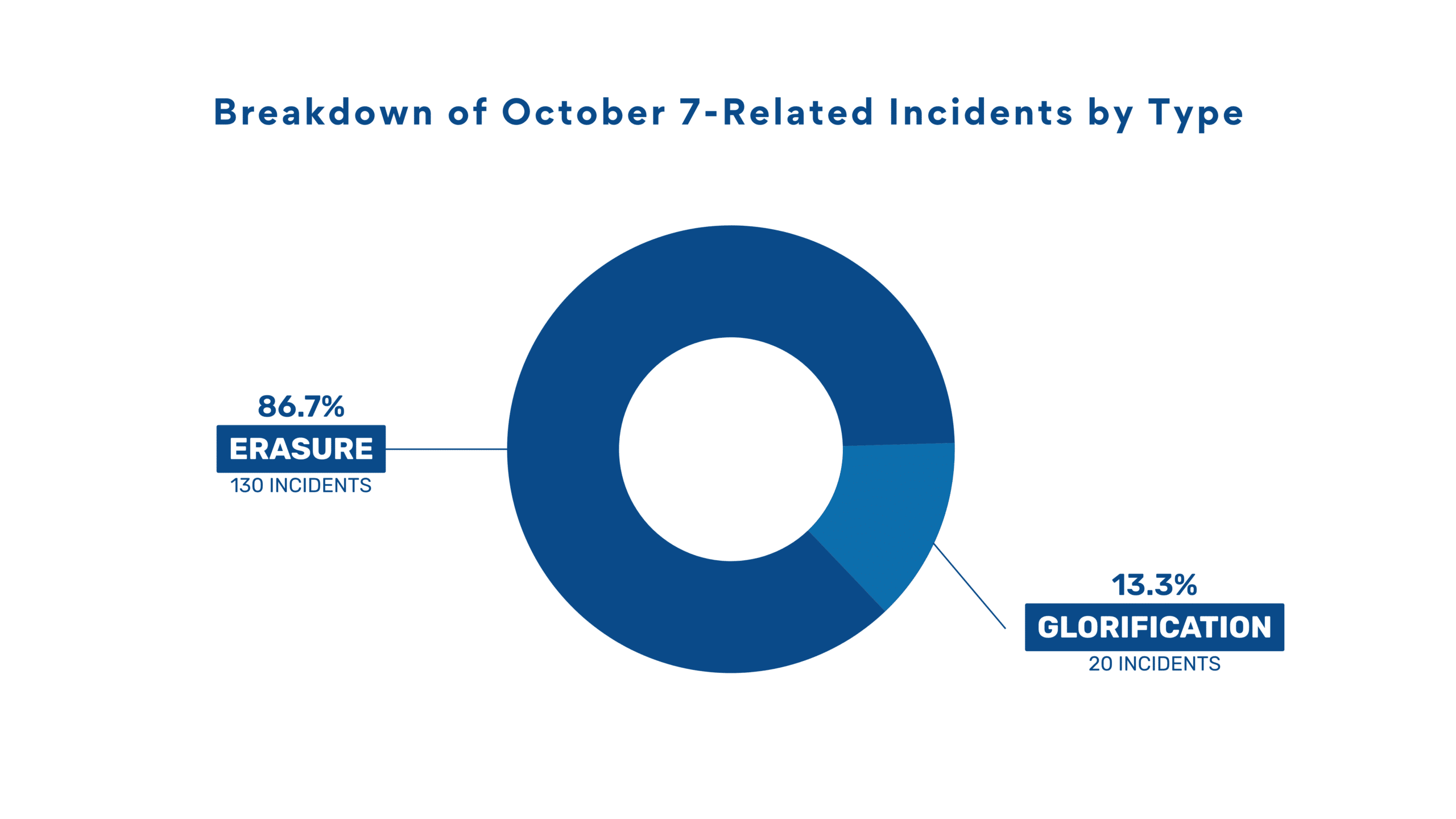
Denial or Erasure of Hamas’ Crimes Stands Out as New Form of Antisemitism
Commemorating the October 7th massacre as the beginning of an Israeli “genocide” against Palestinians is an antisemitic act of erasure, designed to deceive audiences by obscuring Hamas’ horrific crimes. Because Hamas’ genocidal atrocities against Israelis on October 7th triggered the subsequent war in Gaza, anti-Israel activists attempt to expunge the memory of October 7th from the public consciousness, hoping observers will associate that day not with Hamas’ evil, but rather with alleged Israeli wrongdoing. Such lying by omission serves to dehumanize Israeli victims of antisemitic violence.
Whitewashing, overlooking, or outright denying anti-Jewish atrocities and attempting to extinguish the memories of the victims are unfortunately not new phenomena. After October 7th, the widespread attempts to tear down posters depicting the Israeli hostages abducted to Gaza represented yet another insidious effort to erase and dehumanize victims of Hamas’ crimes. In perhaps the most well-known manifestation of anti-Jewish rhetoric, antisemites for decades have denied the irrefutable evidence that Adolf Hitler’s Nazi Germany murdered six million Jews in an attempted wholesale extermination of the Jewish people.
Attempting to invert reality by accusing Jews of crimes committed against them is integral to antisemitic atrocity denial. While Hamas’ October 7th attack was clearly genocidal in its indiscriminate and purposeful slaughter of civilians throughout an entire swath of the Jewish state, anti-Israel activists frame Israel as the genocidal party, despite Israel’s stated defensive aim of destroying Hamas — not the Palestinian people as such — and its unprecedented steps to minimize civilian casualties in Gaza.
Researchers have described how this rhetoric is a textbook example of DARVO, or “Deny, Attack, and Reverse Victim and Offender” — a tactic that abusers employ to deflect from their own behavior.
Glorifying October 7th
Meanwhile, other activists chose to commemorate the two-year anniversary of the deadliest single-day slaughter of the Jewish people since the Holocaust by glorifying the carnage. Ideologically motivated by the belief that Israel is an illegitimate country and that its Jewish inhabitants are “settlers,” many anti-Israel activists view antisemitic terrorist organizations like Hamas as “righteous” fighters against “oppression.” Accordingly, the October 7th massacre becomes not a horrific crime but rather a success because of the pain it caused Israelis.
Glorifying violence against Jewish people is straightforwardly antisemitic. The International Holocaust Remembrance Alliance (IHRA) Working Definition of Antisemitism includes “Calling for, aiding, or justifying the killing or harming of Jews in the name of a radical ideology or an extremist view of religion” as one of 11 examples of contemporary antisemitism.
While many of the organizations that support Hamas and the October 7th massacre are student-run and tend to subscribe to far-left beliefs, glorifying terrorism against Israelis is not limited to a particular ideology. Hamas’ ideology is Islamist, and much of its worldwide support comes from other Islamist actors, such as the Iranian regime. Researchers have referred to this strange confluence of secular leftism and religious radicalism as the “red-green alliance,” motivated by a shared antipathy toward Western and Western-oriented nations like Israel.
A Public Safety Threat
The result of this toxic environment is attacks against Jews globally. Just last week on Yom Kippur, the holiest day of the Jewish year, an Islamist terrorist murdered two Jewish worshipers outside a synagogue in Manchester in the United Kingdom.
In 2024, a total of 9.44 percent of all incidents of antisemitism recorded by the ARC involved violence or threats of violence. Although the proportion dropped to 5.43 percent this year through September 25, any level of antisemitic violence poses a concrete threats that cannot be tolerated.
When the Jewish state and its supporters are demonized with lies, and when the unspeakable crimes of Israel’s enemies are erased, all too many conclude that violence against Jews is justifiable or even a moral imperative. This is why heightened awareness and vigilance are needed at the national, state, and local levels, both on October 7th and all other days of the year, to protect public safety.

